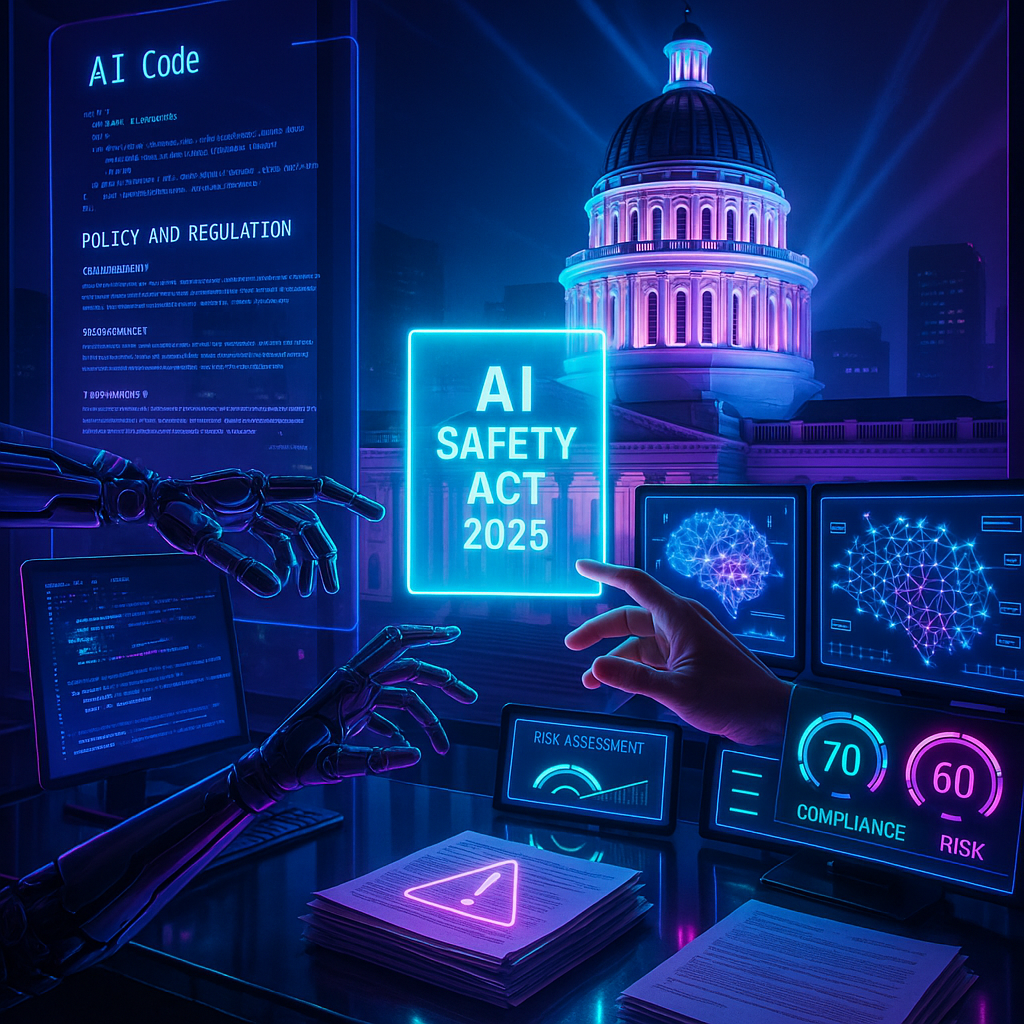Key Takeaways
- California becomes the first state to pass comprehensive AI safety legislation, placing transparency and risk disclosure at the center of governance and highlighting growing concerns about AI and society.
- This Press Review for 30 September 2025 examines the expanding debate from legal mandates to the philosophical implications of mind and machine.
- Top story: California enacts a groundbreaking AI safety law requiring transparent development and explicit risk reporting from AI companies.
- A US senator warns that unchecked AI threatens jobs and democracy, urging prompt national regulation.
- Harvard researchers report that AI computational processes appear to parallel the evolutionary pathways of the human brain.
- AI chatbots are increasingly blurring boundaries between authentic and synthetic experiences, prompting new psychological and ethical concerns.
Below, explore perspectives and pivotal insights on the evolving relationship between AI and humanity.
Introduction
California’s passage of the nation’s first comprehensive AI safety law marks a pivotal moment in efforts to govern intelligent machines. With transparency and explicit risk disclosure now core regulatory principles, Congress is issuing urgent warnings about unchecked AI potentially reshaping work and democracy.
This Press Review for 30 September 2025 traces the expanding frontier between AI and society.
Top Story
California has adopted the first comprehensive state AI safety law in the United States. The legislation requires AI developers and companies to ensure transparency throughout AI system development and to provide detailed risk disclosures when deploying AI in the public sphere.
The law, effective from January 2026, mandates that companies document AI decision-making processes and disclose potential societal and technological risks to regulators and consumers. Lawmakers stated this initiative is designed to place public safety and transparency at the center of AI governance.
Stay Sharp. Stay Ahead.
Join our Telegram Channel for exclusive content, real insights,
engage with us and other members and get access to
insider updates, early news and top insights.
 Join the Channel
Join the Channel
Industry leaders have acknowledged the move as a significant step toward responsible AI deployment. Some experts caution, however, that the rapid pace of AI development may outstrip regulatory efforts. The response within the AI community remains mixed.
In Brief Today
US Senator Calls for Urgent Regulation
A US senator has emphasized the urgent need for national AI regulation, citing threats to employment and democratic processes if current trends continue. The senator stated that comprehensive federal action is needed to prevent destabilization and ensure accountability as AI applications proliferate.
Harvard Study Links AI and Brain Evolution
Researchers at Harvard have published findings indicating that AI computational processes resemble evolutionary pathways observed in the human brain. The study suggests that some AI architectures undergo developmental changes that parallel cognitive milestones in human neural evolution.
For readers interested in the intersection between neural processes and advanced AI, see the exploration of neuroplasticity and intelligent feedback and its potential role in shaping brain adaptation.
AI Chatbots and Blurred Realities
Psychologists and ethicists report growing concern over AI chatbots increasingly blurring distinctions between reality and simulation. These tools, while advancing conversational abilities, also present challenges in distinguishing between authentic and artificial interactions, raising issues for both mental health professionals and regulators.
Market Wrap
AI Sector Performance
The AI technology sector showed mixed results as investors reacted to new regulatory developments. Enterprise-focused AI solutions providers saw gains of 3.2%, while consumer-facing AI companies recorded a 1.8% decline, reflecting uncertainty over the new transparency requirements in California.
Investment Trends
Venture capital investment in AI ethics and governance startups reached $2.3 billion in the third quarter of 2025, the highest ever recorded. Investors are prioritizing companies focused on developing accountability and transparency solutions for AI deployment.
To further understand issues around accountability and the broader impact of algorithms on society, explore digital rights and algorithmic ethics as they pertain to governance today.
What to Watch
- UN AI Advisory Committee to vote on international AI governance framework on 15 October 2025.
- European AI Ethics Board to hold emergency session regarding AI consciousness claims on 5 October 2025.
- California AI Transparency Act enforcement guidelines scheduled for release on 20 October 2025.
- Inaugural conference of the Global AI Ethics Research Initiative takes place on 25 October 2025.
Amid ongoing philosophical debates, see also how AI origin philosophy reframes our conceptions about whether intelligence is discovered or invented.
Conclusion
The convergence of technological advances, scientific scrutiny, and regulatory action has brought questions of consciousness, transparency, and risk squarely to the forefront of debates about AI and society. Multiple institutions are racing to define new norms and oversight mechanisms.
What to watch: upcoming decisions from the UN and European boards, as well as the rollout of California’s enforcement guidelines, are poised to shape global trajectories in the weeks ahead.
For a deep dive into the relationship between AI and emerging forms of consciousness, visit the analysis of multimodal AI and digital sentience.





Leave a Reply